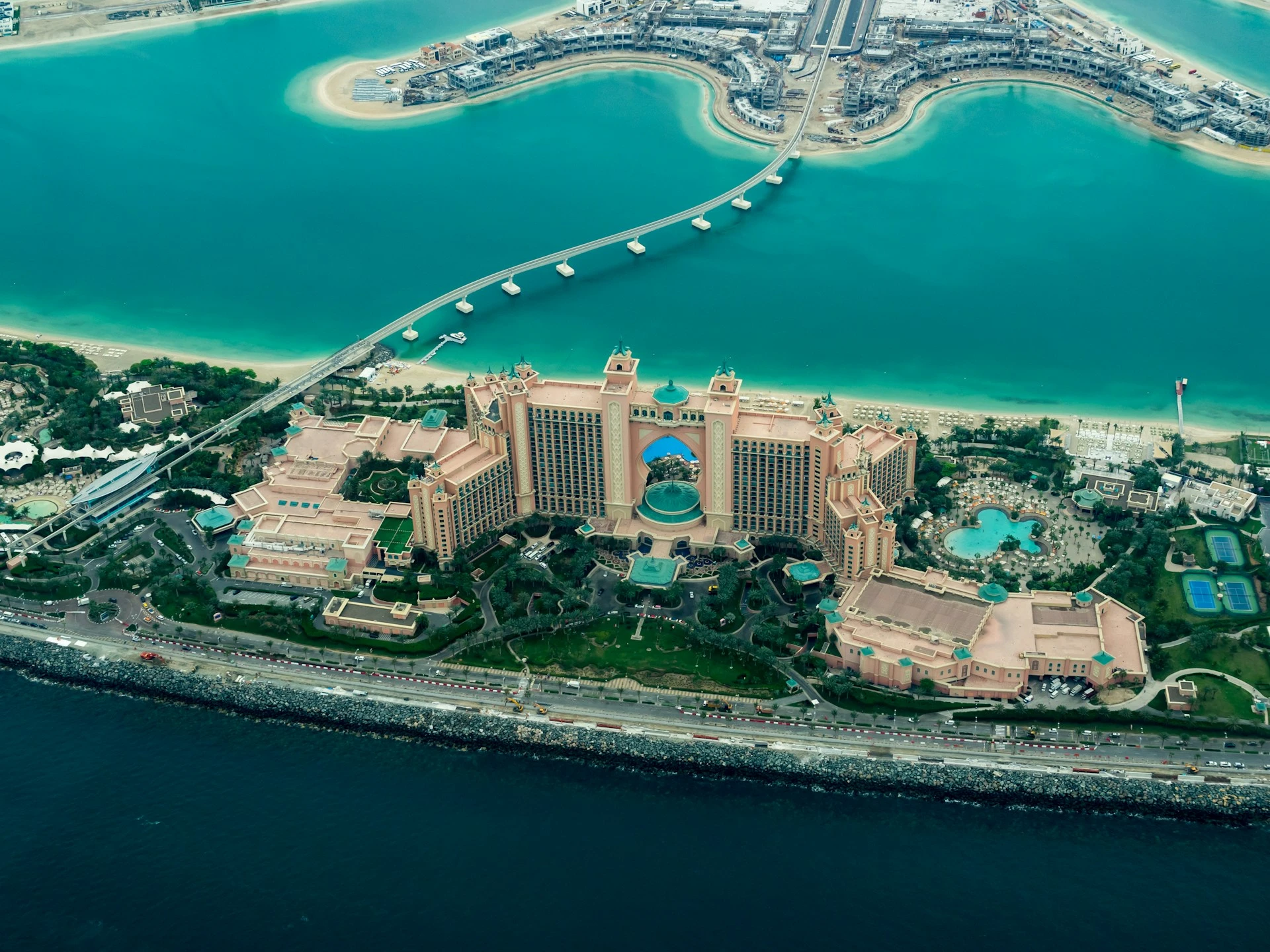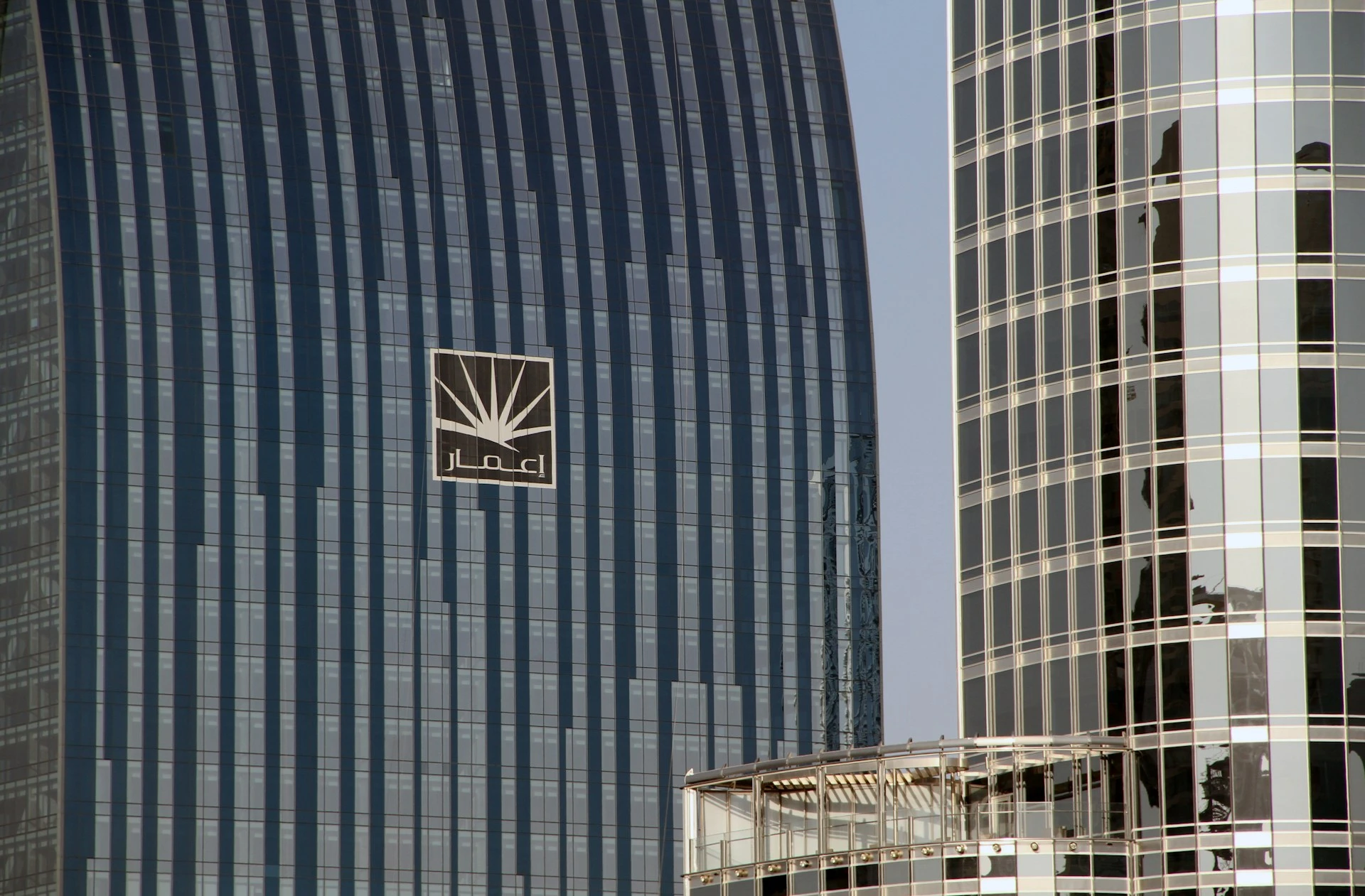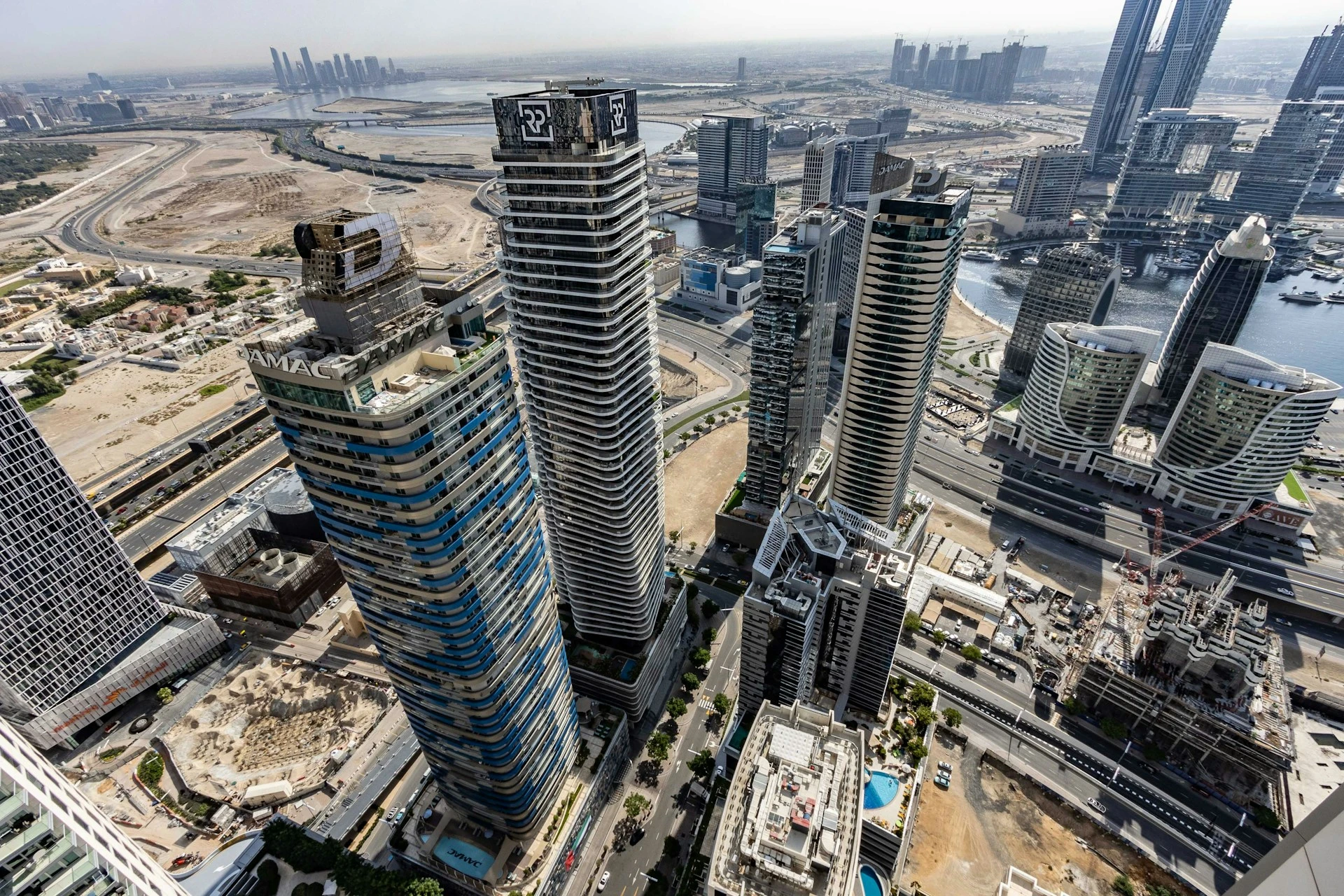Dubai eVisa – Full Guide to Fast, Easy Travel Approval


Dubai isn’t just another city it’s one of the most visited destinations in the world. From futuristic skyscrapers like the Burj Khalifa to traditional souks filled with gold and spices, it attracts millions of travelers each year. But before you can explore all that, you need to make sure your entry documents are in order. For most visitors, that means securing a Dubai eVisa.
The eVisa is an online travel authorization that makes entering the UAE much easier than the old paper-based process. You don’t have to stand in long queues at embassies, and in many cases, you don’t even need to visit a consulate.
Instead, you complete a visa application form online, upload the documents required, pay the visa fees, and wait for visa approval. Depending on your applicant’s nationality, you may need different visa options—such as a tourist visa, transit visa, or a business-related entry permit.
What makes Dubai unique is that its government actively promotes tourism and business meetings through simplified entry rules. Whether you’re flying in for a short stopover, a luxury vacation, or a week of corporate events, the UAE visa application process is designed to be fast and reliable. Many travelers even choose express visa processing time to get approval in as little as 48 hours.
Dubai eVisa Overview
The Dubai eVisa is an electronic travel document that allows foreign visitors to enter the United Arab Emirates without going through a complicated paper process.
It’s part of the broader UAE visa system, which includes different categories such as the tourist visa, transit visa, and business visa. The eVisa is particularly popular because it’s fast, flexible, and accepted for both short vacations and quick work-related visits.
Not every traveler needs a Dubai eVisa, though. Some countries are eligible for visa free entry or a visa on arrival. For example, citizens of Gulf Cooperation Council (GCC) states don’t need to apply in advance. Meanwhile, passport holders from select countries in Europe, Asia, and the Americas can get a valid visa upon arrival. Everyone else, however, must apply online before traveling. This is where the UAE visa application portal or approved travel agent comes in.
One of the biggest advantages of the eVisa is convenience. Instead of visiting an embassy, applicants simply fill out the visa application form, upload the documents required, and pay the visa fees online.

The processing time is usually just a few working days, and for those who need it faster, there’s an express visa processing time option. Once approved, the eVisa is sent to your email, and you can print it or show it digitally upon arrival.
It’s important to remember that the type of visa you need depends on your applicant’s nationality, purpose of visit, and length of stay. For example, Indian nationals usually require a UAE tourist visa before departure, unless they hold a green card or valid residence permit from the US, UK, or certain EU countries, which can make them eligible for visa on arrival.
Business travelers may need to submit additional documents, such as a company invitation letter, while families sometimes provide a marriage certificate or birth certificate to support their application.
Overall, the Dubai eVisa system is designed to simplify entry and encourage more people to experience the city. It’s a key part of why Dubai has become a global tourism and business hub, welcoming millions of visitors every year.
UAE Visa Types Explained
When planning a trip to Dubai or anywhere in the UAE, the first step is choosing the right visa type. The government offers different visa options based on the length and purpose of your stay. Picking the wrong one can create problems at arrival, so it’s important to understand the differences.
The most common category is the UAE tourist visa. This is perfect for vacations, family visits, or leisure travel. It can be issued for a single entry or multiple entry format. A single entry visa means you can enter the UAE once within the entry validity period, while a multiple entry option allows you to travel in and out during your validity period. Most tourists choose the 30-day or 60-day tourist visa, but you can also request longer durations if needed.
For travelers passing through Dubai on their way to another country, the transit visa is ideal. It’s valid for 48 to 96 hours, giving you enough time for sightseeing, shopping, or attending business meetings before your onward flight. Unlike a tourist visa, it requires confirmed flight tickets showing your next destination.

Then there’s the visit visa, often used for family stays or short-term relocation. Business professionals may also apply for this type when attending events or handling company work in the Emirates. Some applicants might need to provide additional documents, such as a marriage certificate or proof of accommodation like a valid tenancy contract.
Long-term visitors, such as workers and residents, require a residence permit issued by the UAE. This is not the same as a tourist visa and involves stricter visa requirements, including employment contracts, medical checks, and sometimes a birth certificate for dependents.
Here’s a quick look at the main visa types and their validity periods:
Visa Type | Purpose | Stay Validity | Entry Type |
|---|---|---|---|
| Tourist Visa | Leisure, vacation, family | 30–60 days | Single / Multiple |
| Transit Visa | Short stopover, onward trip | 48–96 hours | Single |
| Visit Visa | Family visits, short stay | 30–90 days | Single / Multiple |
| Business Visa | Meetings, events, work | 14–30 days | Single / Multiple |
| Residence Permit | Work, long-term living | 1–2 years (renewable) | Multiple |
Each of these visas has its own specific requirements, documents required, and processing time. The good news is that most of them can be applied for through the UAE visa application system online or via an authorized travel agent.
UAE Tourist Visa – Your Main Option
For most travelers, the UAE tourist visa is the simplest and most flexible way to enter Dubai. It’s designed for leisure trips, short vacations, family visits, and even those combining sightseeing with light business meetings. Since Dubai attracts millions of international visitors each year, the Dubai eVisa system makes applying for this visa fast and convenient.
The standard tourist visa usually comes in two main formats: 30-day and 60-day stay validity. Both can be issued as a single entry or multiple entry visa, depending on how often you plan to leave and re-enter the UAE during your trip.
If you only intend to visit once, the single entry option works fine. But if your itinerary includes other Gulf countries and you plan to return, the multiple entry visa offers more flexibility.
Now, many travelers ask: Is a Dubai visa free for Indians? The answer is no—most Indian nationals need a valid UAE tourist visa before boarding their flight. However, there are exceptions. If an Indian traveler holds a green card from the United States, a valid UK residence permit, or a residence permit issued by the EU, they may qualify for a visa on arrival in Dubai.

In that case, they don’t need to apply for the eVisa in advance. Still, for the majority of Indian visitors, applying online through the UAE visa application portal, a travel agent, or VFS Global offices in New Delhi, Tamil Nadu, or Anna Salai is required.
The visa requirements for a tourist visa are straightforward. You’ll need an original passport valid for at least six months, a recent photo with a white background, and proof of flight tickets and accommodation booking.
Depending on the applicant’s nationality, additional documents like a marriage certificate or birth certificate may be requested. Families applying together may be asked to show proof of relationship for minors.
A tourist visa is not just about paperwork—it’s also about flexibility. It can be extended thrice, which means you can lengthen your stay if your holiday plans change. Many travelers use this option to turn a short UAE holiday into a longer adventure without leaving the country.
UAE Visa Application – Step by Step
Applying for a Dubai eVisa is much easier than it sounds. The UAE government has streamlined the process so applicants can submit everything online, without needing to wait in long embassy lines. Still, to avoid delays, it’s important to follow the steps carefully and ensure that all documents required are complete.
Step 1: Choose the right visa type
Before anything else, decide whether you need a tourist visa, transit visa, or another category. The choice depends on your applicant’s nationality, purpose of travel, and length of stay.
Step 2: Fill out the visa application form
Head to the official UAE visa application portal, a recognized travel agent, or centers like VFS Global. The application form will ask for basic information: full name, nationality, passport details, and intended travel dates. Double-check every detail since even a small error can lead to rejection.
Step 3: Gather and submit documents
Applicants must upload or submit scanned copies of all supporting paperwork. Most categories require similar files, though specific requirements vary by visa type.
Here’s a quick checklist of the documents required:
Document | Notes |
|---|---|
| Original Passport | Must be valid for at least six months from date of travel |
| Recent Photo | White background, passport-size, clear facial features |
| Flight Tickets | Proof of onward journey or confirmed booking |
| Accommodation Details | Hotel reservation, booking, or valid tenancy contract if staying long |
| Visa Application Form | Completed and signed (online or offline submission) |
| Additional Documents (if any) | May include marriage certificate, birth certificate, green card |
Step 4: Pay the visa fees
Payment is usually made online through credit/debit card. Some service providers also accept bank transfers or cash at their offices. The cost varies depending on the visa type and validity period.
Step 5: Wait for approval
The normal visa processing time is 3–5 working days, excluding weekends and public holidays. If you’re in a hurry, you can request express visa processing time, which delivers results within 48 hours. Once approved, you’ll receive your visa by email. Print a copy or keep a digital file ready for arrival at the airport.
This step-by-step process ensures smooth travel and avoids last-minute surprises. With the right paperwork and a correctly filled application form, approval is straightforward.
Additional Documents You May Need
While the basic requirements for a Dubai eVisa are fairly standard, some travelers will be asked to provide additional documents. These are usually linked to the applicant’s nationality, purpose of travel, or family circumstances. Missing these papers can delay approval, so it’s best to prepare them in advance.
For families traveling together, authorities may request a marriage certificate to confirm spousal relationships, especially if the wife is applying under the husband’s sponsorship. Similarly, parents traveling with children may need to show a birth certificate to establish legal guardianship. These documents help immigration authorities verify that dependents are correctly linked to the main applicant.
Business travelers attending meetings, conferences, or events might also need extra paperwork. An invitation letter from the host company, proof of sponsorship, or corporate details could be required, depending on the visa type. In some cases, companies hosting international guests in Dubai handle this step through an authorized UAE visa application service or a travel agent.

Applicants staying longer than a hotel booking allows may also be asked for a valid tenancy contract. This applies when someone is visiting family, staying in rented apartments, or extending their stay in the UAE. It proves that the applicant has a legal place of residence during their visit.
For certain nationalities, stricter checks apply. For example, some countries may need to provide bank statements, employment letters, or even notarized documents to confirm financial stability. Indian nationals applying from New Delhi, Tamil Nadu, or Anna Salai sometimes encounter these additional requirements, depending on their visa category.
Another common case is residents of other countries applying from abroad. If you hold a green card or a foreign residence permit issued by the US, UK, or EU, you may qualify for a visa on arrival, but authorities could still ask for supporting documents like proof of onward journey or employment.
The bottom line: the list of documents required is not the same for every applicant. While the application form and original passport are universal, the supporting documents vary.
It’s wise to confirm specific requirements with the consulate general, embassy, or your chosen service provider before submitting. This ensures your application won’t be rejected for missing details.
Visa Fees and Costs
One of the first questions travelers ask is, How much does a Dubai visa cost? The answer depends on the visa type, validity period, and whether you choose regular or express visa processing time. Unlike some destinations that offer broad visa free entry, Dubai’s fees are clearly structured and must be paid before the application can be processed.
For most visitors, the UAE tourist visa is the standard choice. A 30-day single entry visa usually costs between USD 90–110, while a 60-day visa ranges from USD 150–180. If you need a multiple entry tourist visa, the price is higher, often between USD 200–250, depending on the service provider.
The transit visa is much cheaper. A 48-hour visa can be as low as USD 10–20, while a 96-hour option usually costs USD 30–40. These are ideal for short layovers or quick visits but require proof of onward journey flight tickets.
For business or family visits, the costs vary more widely. A short-term visit visa typically falls between USD 120–150, while longer stays of up to 90 days can exceed USD 300.

The residence permit, which is for long-term work or family sponsorship, involves much higher fees because it includes medical checks, local processing, and sometimes extra charges for additional documents like a marriage certificate or birth certificate.
Here’s a quick fee breakdown for common visas:
Visa Type | Entry Type | Validity Period | Approx. Fee (USD) |
|---|---|---|---|
| Tourist Visa (30 days) | Single Entry | 30 days | 90–110 |
| Tourist Visa (60 days) | Single/Multiple | 60 days | 150–250 |
| Transit Visa (48 hrs) | Single Entry | 48 hours | 10–20 |
| Transit Visa (96 hrs) | Single Entry | 96 hours | 30–40 |
| Visit Visa (30–90 days) | Single/Multiple | 30–90 days | 120–300+ |
| Residence Permit | Multiple Entry | 1–2 years | 1000+ (varies) |
Keep in mind that fees also depend on where you apply. If you go through VFS Global in New Delhi or Tamil Nadu, there may be additional service charges. Applications filed with a travel agent sometimes include bundled costs for form submission, address verification, and approval follow-up.
Finally, if you need fast approval, you can pay for express visa processing time. This adds anywhere from USD 50–100 on top of standard fees but shortens the processing time to just 1–2 days. For travelers with last-minute bookings, this option is often worth it.
Processing Time and Approval
One of the biggest concerns for travelers is how long it will take to receive their Dubai eVisa. The good news is that the UAE has made the process efficient, with standard and fast-track options depending on your needs.
For most applicants, the normal visa processing time is between 3 to 5 working days. This period excludes weekends and public holidays, so if you apply just before Friday or during national celebrations, expect a slight delay. In the UAE, Saturday and Sunday are usually considered non-working days, so applications filed on those dates begin processing the following Monday.
Now, many travelers ask: Can I get my Dubai visa in 2 days? The answer is yes—if you choose express visa processing time. With this option, your application is prioritized, and you can often receive approval within 24 to 48 hours, excluding Saturday. This service costs extra, but it’s a lifesaver for those with last-minute trips, urgent business meetings, or sudden travel plans.
Approval itself is straightforward if your application form and documents required are complete. Once submitted, the system checks your original passport details, flight tickets, and supporting papers like a marriage certificate or birth certificate (if needed). If everything matches, your visa is issued electronically. You’ll receive an email with the approved document, which can be printed or saved digitally for presentation at the airport.
For certain applicant’s nationalities, extra verification may extend the approval timeline. In such cases, the consulate general may ask for additional documents or clarification. That’s why it’s important to apply early if you know your trip dates. If you use a travel agent or VFS Global in New Delhi, Tamil Nadu, or Anna Salai, they can often provide tracking updates and ensure the visa application is submitted correctly.
In short, a Dubai eVisa is usually approved within a week, but travelers who need it sooner can pay for express service. As long as your paperwork is valid and complete, approval is rarely an issue.
Validity Period and Extensions
When applying for a Dubai eVisa, understanding the validity period is just as important as knowing the fees and documents required. Many travelers confuse “entry validity” with “stay validity,” but these are two separate terms used in the UAE visa system.
The entry validity refers to the time frame within which you must use your visa to enter Dubai after it has been issued. For most tourist visas, this period is 60 days from the date mentioned on the visa. If you don’t enter within that time, the visa becomes void, and you’ll need to apply again.
On the other hand, the stay validity begins from the day you arrive in Dubai. For example, if you have a 30-day tourist visa, your countdown starts at arrival—not from the date of approval. This is why checking your travel dates and flight tickets carefully is critical.

Most tourist visas allow either 30 days or 60 days of stay. If you need more time, there is an option to extend. The UAE government permits the tourist visa to be extended thrice, giving travelers additional flexibility. Each extension usually adds another 30 days, but you must apply before your current visa expires. Extensions come with an extra fee, which varies depending on whether you applied through the official portal, a travel agent, or services like VFS Global.
For other visa types, the rules differ. A transit visa is short-term and cannot be extended—it’s strictly valid for 48 to 96 hours. A visit visa often has longer stay validity (30 to 90 days), and some categories can be extended, depending on the applicant’s situation.
A residence permit issued for work or family sponsorship lasts 1–2 years and is renewable but follows an entirely different process involving contracts, local approval, and sometimes additional documents such as a marriage certificate or birth certificate.
It’s also important to note that overstaying your visa leads to penalties, including daily fines. Travelers should always keep track of both entry validity and stay validity to avoid legal issues.
Consulate General and Embassy Support
Even though the Dubai eVisa process is mostly online, there are times when travelers need direct support from a consulate general or embassy. These offices handle applications that require extra verification, guide travelers with specific requirements, and step in when there are technical issues with the UAE visa application system.
For example, if an applicant’s nationality falls under stricter checks, the consulate may request additional documents before granting approval. This could include notarized copies of a marriage certificate, a birth certificate for dependents, or even financial records to prove the traveler can cover expenses during their stay. In such cases, the application form may need to be resubmitted with the missing paperwork.
In India, many travelers apply through VFS Global centers that coordinate with the UAE consulates. The most active branches include the Consulate General of the UAE in New Delhi, as well as facilities in Tamil Nadu and Anna Salai. These centers act as intermediaries, helping applicants prepare their files, check if their passport and photos (with a white background) meet requirements, and forward applications for review. While service providers like travel agencies can handle submissions, official consulates remain the final authority for visa approval.
Embassies and consulates also help with urgent cases. If you’ve applied for express service but haven’t received results within the promised processing time, you may be asked to contact the consulate for status updates. They can confirm whether your original passport and documents have been accepted or if corrections are needed.
Another role of the consulate is assisting with residence permits and long-term visa types. While short-term tourist visas rarely require a personal visit, applying for a residence permit issued under employment or family sponsorship almost always involves embassy coordination. This includes legalizing contracts, verifying family ties, and ensuring all documents are properly attested.
Flight Tickets, Arrival & Onward Journey
When applying for a Dubai eVisa, one of the most important requirements is proof of confirmed flight tickets. Immigration authorities want to ensure that travelers have both a way into Dubai and a way out. For this reason, your visa application may be rejected if you cannot provide either a return ticket or an onward journey booking to another country.
During the UAE visa application process, you’ll be asked to upload copies of your airline reservation. These tickets must match the dates mentioned in your application form. For example, if you apply for a 30-day tourist visa, your return ticket should fall within the stay validity of that visa. If your travel plans change later, you can update your booking, but at the time of application, valid proof of travel is essential.
At arrival in Dubai, immigration officers may request to see your original passport, printed copy of your Dubai eVisa, and your confirmed tickets. Airlines such as Emirates also verify this before allowing you to board, since carrying passengers without proper documents can result in heavy fines. To avoid problems, it’s best to carry both printed and digital copies of your visa and bookings.
For transit visa holders, showing proof of an onward flight is even more critical. These short-term visas (48 to 96 hours) are only granted if you are connecting to another destination. Without onward travel evidence, immigration may deny entry.
Business travelers attending meetings or events are also advised to keep a copy of their return tickets, as well as hotel booking confirmations or a valid tenancy contract if staying longer.
Your applicant’s nationality can also play a role. Some countries face stricter entry checks and may be asked for additional proof of accommodation or financial documents, alongside tickets. Using a travel agent or VFS Global can simplify this, since they often package visa processing together with flight and hotel bookings.
In short, confirmed flight tickets are more than just a travel detail—they are part of your visa requirements. Without them, your visa approval and entry into Dubai could be at risk. Always make sure your travel dates, bookings, and visa validity align before you depart.
Pros & Cons of Dubai eVisa vs Other Options
Travelers to Dubai usually have three possible entry routes: applying for a Dubai eVisa, getting a visa on arrival, or qualifying for visa free entry. Each option has its strengths and limitations, and knowing the difference helps you avoid surprises at the airport.
The Dubai eVisa is the most widely used option. It’s available to the majority of nationalities and is processed online before departure. This means you can travel with peace of mind, knowing your visa approval is already secured.
It works for most tourist visas, visit visas, and even some business visa categories. The main downside is the paperwork—you’ll need to submit an application form, provide all documents required, and pay the visa fees in advance.
The visa on arrival is convenient, but only a limited list of countries is eligible. For example, citizens of the US, UK, EU, and a few Asian nations can get this option. Some Indian nationals also qualify if they hold a green card or a residence permit issued by certain countries.

The benefit is that there’s no need to apply before your trip; however, the downside is uncertainty. Long queues, higher visa fees, or rejection at the airport are all possible risks.
Finally, visa free entry is the easiest but also the rarest option. This applies mainly to citizens of GCC countries like Saudi Arabia, Kuwait, and Qatar. These travelers don’t need to apply at all, making the process simple and cost-free. For everyone else, however, this benefit doesn’t apply.
Here’s a quick comparison:
Option | Pros | Cons |
|---|---|---|
| Dubai eVisa | Secure approval before travel; works for most nationalities; online process | Requires documents, fees, and advance planning |
| Visa on Arrival | Convenient; no advance application needed | Limited eligibility; long queues; possible higher fees |
| Visa Free Entry | No fees; no paperwork | Only available to select nationalities (mainly GCC) |
In short, while visa on arrival and visa free entry are easier for those who qualify, the Dubai eVisa remains the safest and most reliable path for the majority of global travelers.
Documents Required Recap (Checklist)
By now, you’ve seen that a Dubai eVisa application depends heavily on submitting the right paperwork. To make things easier, here’s a complete recap of the documents required for most UAE visa applications. Having these ready before starting your application form can save you from last-minute stress or rejection.
Core Documents (required for almost all applicants)
- Original Passport – Must be valid for at least six months from the date of travel.
- Recent Photograph – Color photo with a white background, passport-size, and clear visibility.
- Visa Application Form – Completed and signed, whether online or submitted through a travel agent or VFS Global.
- Flight Tickets – Proof of confirmed booking (both arrival and onward journey or return).
- Accommodation Details – Hotel booking, invitation letter, or valid tenancy contract if staying with family/friends.
Additional Documents (depending on applicant’s nationality or visa type)
- Marriage Certificate – Required if applying under spousal sponsorship or traveling with a spouse.
- Birth Certificate – Needed for children/minors traveling with parents or guardians.
- Green Card / Residence Permit Issued Abroad – May help some travelers (e.g., Indian nationals) qualify for visa on arrival instead of applying in advance.
- Business Papers – Invitation letter, company documents, or meeting confirmations for business visa applicants.
- Financial Proof – Bank statements or employment letters may be requested for specific countries.
Here’s a quick recap in table form:
Document | Why It’s Needed |
|---|---|
| Passport (6+ months) | Confirms identity and travel eligibility |
| Photo (white background) | Required for visa card/ID creation |
| Flight Tickets | Proof of entry and onward journey |
| Accommodation Booking | Shows where you’ll stay during visit |
| Marriage Certificate | Verifies spousal relationship |
| Birth Certificate | Verifies minor’s guardianship |
| Green Card/Residence Permit | Determines eligibility for visa on arrival |
| Business Documents | Supports work or meeting-related travel |
Travelers applying through consulate general offices in New Delhi, Tamil Nadu, or Anna Salai may also face extra verification, so keeping additional documents handy is a good idea. Always check the specific requirements for your applicant’s nationality before submitting.
Having this checklist ready ensures your Dubai eVisa application goes smoothly, reduces delays in processing time, and improves the chances of fast approval.
Business and Tourism Use Cases
The Dubai eVisa isn’t just for leisure—it’s flexible enough to support both tourism and business meetings, making it one of the most widely used entry permits in the UAE. Understanding how the visa applies to different situations ensures you pick the right option for your trip.
For tourists, the UAE tourist visa remains the most popular. It’s designed for short stays, covering family holidays, solo vacations, or group tours. Most travelers apply for the 30-day single entry visa, but the 60-day option is growing in popularity for those who want extra time to explore.
Whether you’re shopping in malls, relaxing at beaches, or taking part in a UAE holiday celebration, the tourist visa offers the right balance of affordability and validity period. Families may also use it for visiting relatives, in which case additional documents like a marriage certificate or birth certificate might be requested.

For business travelers, the Dubai eVisa opens doors to a wide range of opportunities. Professionals attending conferences, exhibitions, or corporate meetings often apply for a short-term business visa. These visas can be issued as single entry or multiple entry, depending on how often the applicant needs to travel in and out of the UAE. In many cases, companies provide supporting documents such as invitation letters, ensuring smoother approval during the visa application process.
Both categories share the same basics: a completed application form, original passport with at least six months validity, a recent photo with a white background, and confirmed flight tickets. But the purpose of travel determines the extras. For tourism, proof of accommodation booking or a valid tenancy contract may be required. For business, it’s corporate letters or meeting confirmations.
Service providers like VFS Global and authorized travel agents help streamline both types of applications. They ensure all documents required are submitted correctly, preventing delays in processing time. This is particularly helpful for travelers with tight schedules, where even a small mistake could affect entry.
In summary, whether you’re planning a family vacation or flying in for high-level negotiations, the Dubai eVisa is tailored to meet your needs. It keeps travel flexible, ensures compliance with UAE regulations, and supports both leisure and professional purposes.
Conclusion
Traveling to Dubai has never been easier, thanks to the Dubai eVisa system. Whether you’re visiting for leisure, family, or business meetings, the process is designed to be simple, digital, and accessible from anywhere in the world. Instead of standing in long embassy queues, you can complete your UAE visa application online, upload the documents required, pay the visa fees, and receive approval by email—often within just a few days.
For most travelers, the UAE tourist visa is the main entry path. It offers flexibility with 30-day or 60-day stay validity, options for single entry or multiple entry, and the ability to be extended thrice if your plans change. While visa on arrival and visa free entry are convenient for a small group of eligible nationalities, the eVisa remains the safest and most widely accepted option.
It’s important to prepare your paperwork carefully. Always ensure your original passport is valid for at least six months, your flight tickets match your travel dates, and any additional documents—such as a marriage certificate, birth certificate, or proof of accommodation—are ready to submit if required. Doing this not only speeds up the visa processing time but also avoids last-minute delays.
In the end, the Dubai eVisa is more than a formality—it’s your gateway to one of the world’s most dynamic destinations. From futuristic skylines to traditional souks, from UAE holidays to international business hubs, Dubai has something for everyone. With the right visa in hand, all that’s left to do is pack your bags and enjoy the journey.